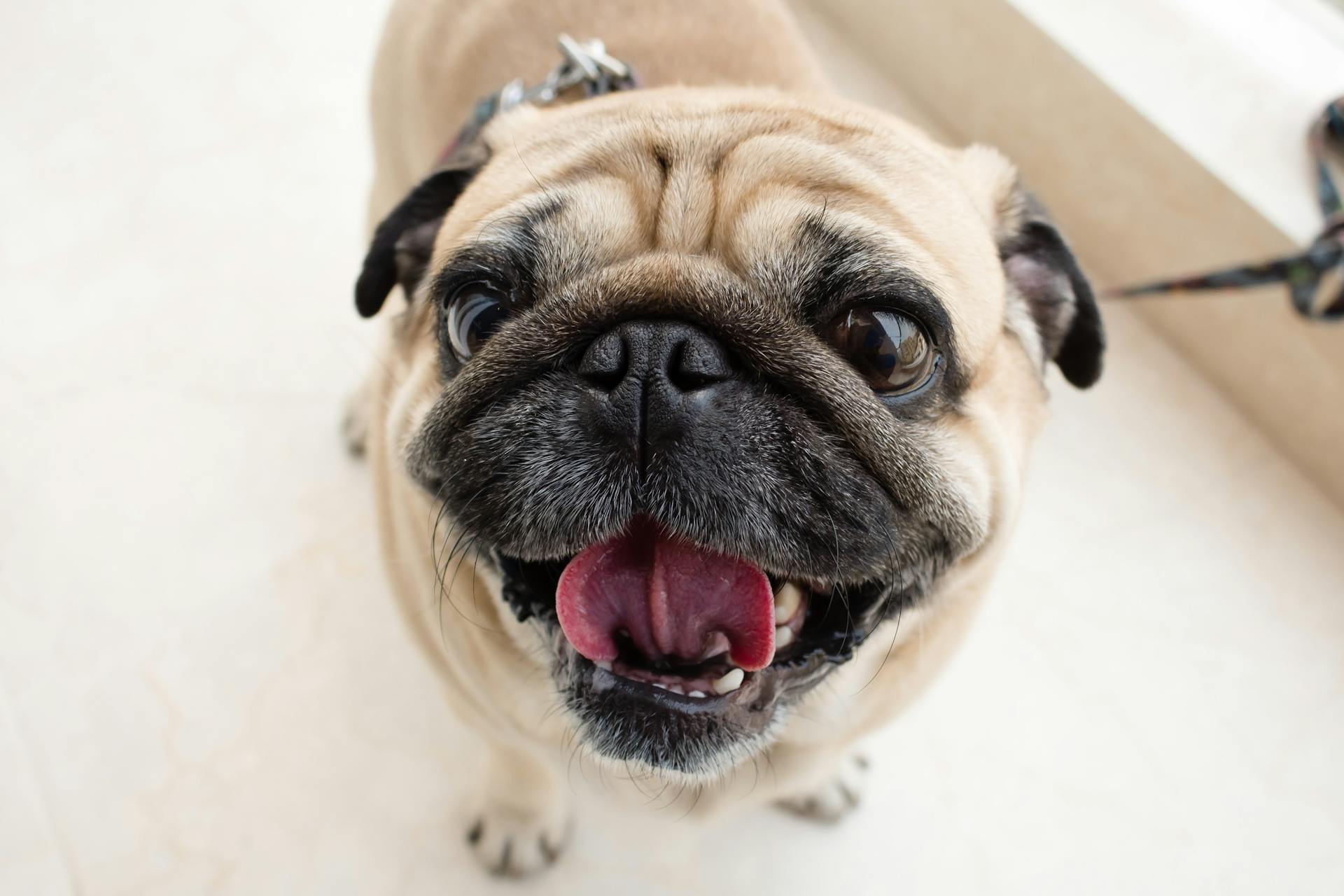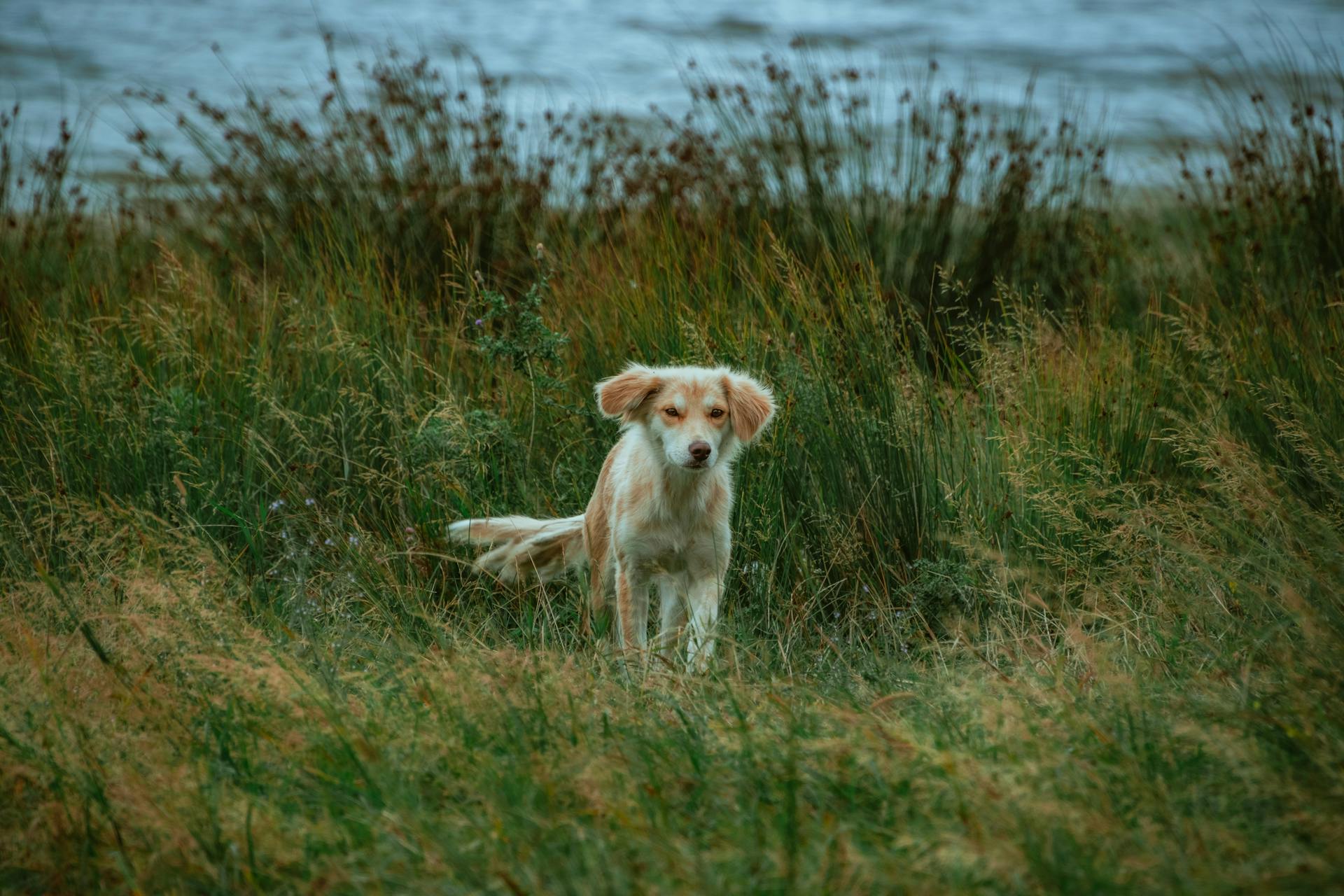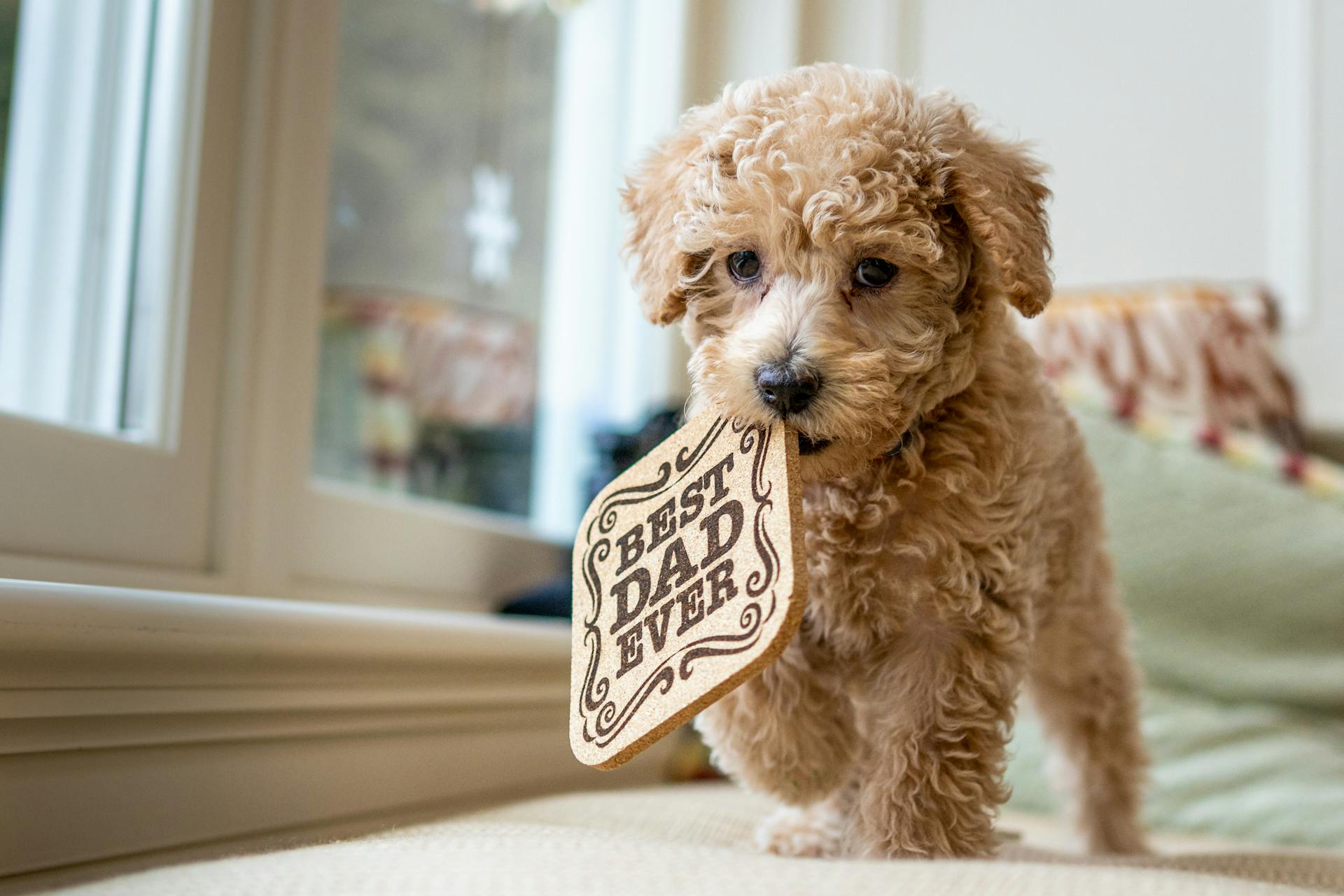
Finding a responsible Puggle breeder can be a daunting task, but it's essential for getting a healthy puppy. Research is key, so start by asking for referrals from friends, family, or veterinarians.
Look for breeders who are transparent about their breeding practices and health clearances. This means they'll have test results for genetic disorders that affect Puggles, such as hip dysplasia and eye problems.
A good breeder will also prioritize temperament and socialization, so be sure to ask about their approach to raising puppies. They should be able to provide you with information about the puppy's personality and training.
Ultimately, a responsible breeder will put the needs of their puppies and families first, so trust your instincts and choose a breeder who makes you feel confident and comfortable.
Choosing a Reputable Breeder
Choosing a reputable breeder is crucial when looking for a Puggle. A reputable breeder adheres to responsible breeding practices, ensuring the well-being of their dogs. They avoid overbreeding and provide proper care and socialization for their puppies.
To find a responsible breeder, ask questions like "How long have you been breeding Puggles?" and "Can you provide health clearances for the puppy's parents?" This will help you gauge their knowledge, experience, and commitment to ethical breeding.
When visiting a breeder, look for a clean and spacious living area for the dogs. Healthy, well-socialized puppies are a must, and a knowledgeable and caring breeder is essential. You can also check if the breeder is a member of recognized breeding associations such as the AKC.
Here's a checklist to help you verify a breeder's credentials:
- Check if the breeder is a member of recognized breeding associations.
- Look for reviews and ask for references from previous puppy buyers.
Remember, a reputable breeder will welcome your visit and show you around their facility. Be wary of breeders who cannot provide health clearances or seem uninterested in your questions.
Breeding Practices
A reputable Puggle breeder will prioritize the health and genetic integrity of their dogs, conducting health screenings and providing documentation to ensure their puppies are free from hereditary conditions.
Broaden your view: Puggle Problems Health
They will also provide health clearances, which can be a sign of a responsible breeder who is committed to the well-being of their dogs. Be wary of breeders who cannot provide these clearances or hesitate to discuss the health of their dogs.
Avoid breeders with unclean or overcrowded facilities, as this can indicate neglect and poor breeding practices.
For more insights, see: Returned Dogs
Ethical Breeding Practices
Ethical breeders prioritize the well-being of their dogs, avoiding overbreeding and providing proper care and socialization for their puppies.
They conduct health screenings and provide documentation to ensure their puppies are free from hereditary conditions. This includes tests for common genetic conditions, such as hip dysplasia and eye conditions.
Reputable breeders provide health clearances for the puppy's parents, which is essential for making informed decisions as a buyer. This transparency gives you peace of mind knowing the health background of your new pet.
If a breeder cannot provide health clearances or hesitates to discuss the health of their dogs, it's best to avoid them. Responsible breeders are transparent about the health of their dogs and can provide documentation to support their claims.
For more insights, see: Breeders of Hypoallergenic Dogs
Here are some key things to look for when reviewing health clearances:
- Health Screenings: Ensure the breeder has conducted health screenings for the puppy's parents.
- Detailed Questions: Ask the breeder about genetic testing and health protocols.
By prioritizing the health and genetic integrity of their dogs, reputable breeders give you the best chance of bringing home a happy and healthy companion.
Poor Living Conditions
Avoid breeders with unclean or overcrowded facilities, as this can indicate neglect and poor breeding practices.
Unclean facilities can be a sign of poor sanitation and hygiene, which can lead to the spread of diseases among the animals.
Overcrowding can cause stress and discomfort for the animals, making them more prone to health problems.
Poor living conditions can also be a reflection of the breeder's priorities and values, so it's essential to consider the overall welfare of the animals.
High-Pressure Sales Tactics
Reputable breeders want to ensure their puppies go to good homes. Be cautious of breeders who pressure you to make a quick decision.
High-pressure sales tactics are a red flag, as they can indicate a breeder's primary concern is making a sale, not finding a suitable home for their puppy.
Breeders who use these tactics may be more interested in the money than the well-being of their dogs.
Puggle Characteristics
Puggles are adorable companions that make great family pets. Puggles are relatively small dogs, typically weighing between 15 to 30 pounds.
Their compact size is one of their most charming features. You can expect your Puggle to stand between 8 to 15 inches tall at the shoulder.
One thing to keep in mind is their lifespan, which is around 10 to 15 years. This means you'll have plenty of time to spoil them rotten and watch them grow into loving companions.
You might enjoy: Awana Puggles
Characteristics
The Puggle is a compact and muscular dog with a unique appearance. They typically stand between 8 to 15 inches tall at the shoulder.
Their weight can vary, but most Puggles weigh between 15 to 30 pounds. This makes them a great companion for many families.
Puggles have a relatively long lifespan, living for around 10 to 15 years. This is a significant consideration for anyone thinking of bringing a Puggle into their home.
Here are some key physical characteristics of the Puggle:
- Build: Compact and muscular
- Tail: Usually curled over the back, but can be straighter in some cases
- Coat: Short, dense, and smooth
- Legs: Generally sturdy and well-proportioned to the body
- Paws: Compact and round, often with well-arched toes
Coat and Color Variations
Puggles come in a wide range of coat colors and patterns, thanks to their Pug and Beagle parents.
Their most common colors include fawn, tan, and black, often with white markings that add to their charm.
Fawn Puggles can range from light beige to a deeper reddish-brown, making each one unique.
Black Puggles may have a solid coat or show some brindling, giving them a distinctive appearance.
White markings are frequently seen on the chest, paws, and face, adding a touch of elegance to their overall look.
Their coat texture is typically short and smooth, but some individuals may have a slightly longer or denser coat depending on their parent breeds' genes.
Explore further: What Breed Is a Puggle
Grooming Needs
Puggles have relatively low grooming needs, but they still require regular care to keep them looking and feeling their best. They have short, dense coats that shed moderately year-round.
To keep their coat in good condition, brush your Puggle 1-2 times a week with a soft-bristle brush or a rubber grooming mitt. This will help remove loose fur and reduce shedding.
Bathing is not a frequent necessity for Puggles, unless they get dirty or smelly. In that case, a bath every 1-2 months should be sufficient, using a dog-friendly shampoo to avoid skin irritation.
Here are some key grooming tips to keep in mind:
- Brush 1-2 times a week to remove loose fur and reduce shedding.
- Bath every 1-2 months, using dog-friendly shampoo.
Frequently Asked Questions
How much does a Puggle puppy cost?
A Puggle puppy's cost ranges from $1,200 to over $3,000, influenced by factors like location, breeder experience, and pedigree. Prices may vary, so it's essential to research and find a reputable breeder for a high-quality pup.
What is the lifespan of a Puggle?
A Puggle's average lifespan is 10 to 15 years, making them a long-term companion for many families. With proper care, they can live a happy and healthy life.
Are Puggles good dogs?
Puggles are friendly and social family pets, but they can be challenging to train due to their stubborn nature.
Do Puggles bark a lot?
Puggles can bark excessively if they don't receive enough exercise and mental stimulation. Regular physical and mental activity can help prevent excessive barking.
Sources
- https://www.k9reproduction.com/single-post/puggle-breeder-selection-expert-tips-for-finding-a-reputable-breeder
- https://www.humanesociety.org/resources/how-find-responsible-dog-breeder
- https://dogtime.com/dog-breeds/puggle
- https://www.petfinder.com/dogs-and-puppies/breeds/puggle-dogs-puppies/
- https://www.pugdogclubofamerica.com/breeders
Featured Images: pexels.com


